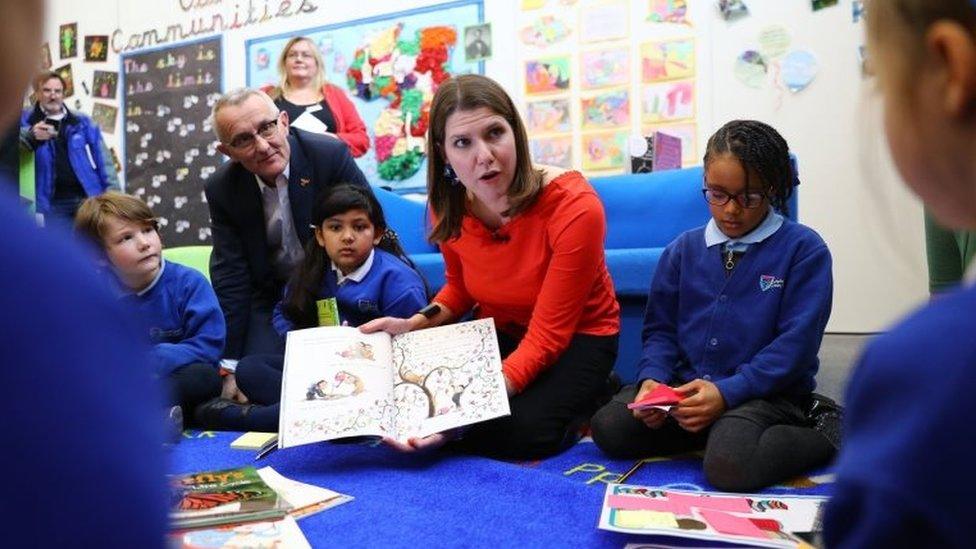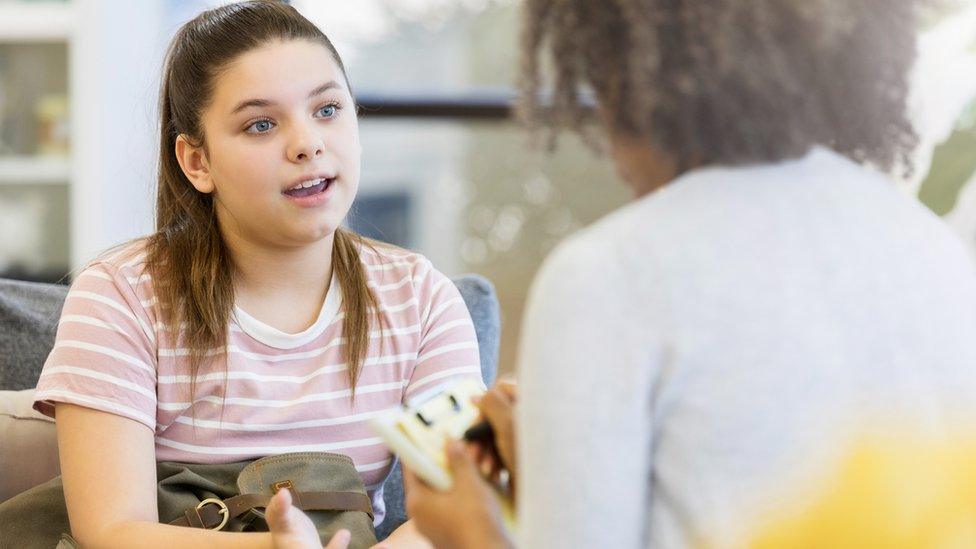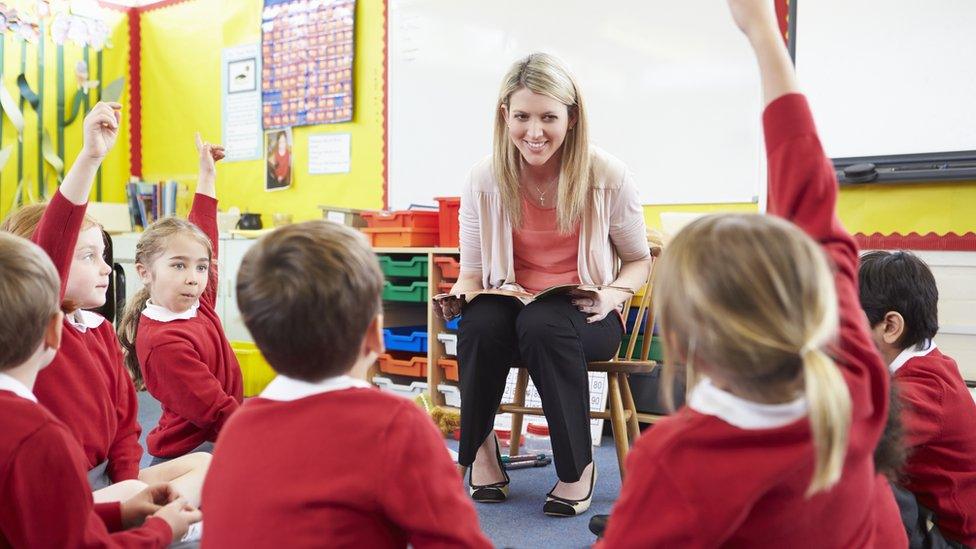General election 2019: Lib Dems promise 20,000 more teachers
- Published
- comments

The Lib Dems have promised to recruit 20,000 more teachers in England and spend billions more on schools if they are elected to government.
The party, which will launch its manifesto later, says it will reverse school cuts with an "emergency cash injection" of £4.6bn next year.
The extra funding would rise to £10.6bn by 2024/25 compared to 2019/20, under their plan.
The party is also promising to widen access to free school lunches.
They plan to spend an extra £1.1bn per year on meals for every primary school child, and secondary school children whose families receive universal credit (UC).
Since 2018, children in school year three or above from families on UC have qualified only if the family's annual employment income is less than £7,400.
The anti-Brexit party says £10bn will be taken from what they claim will be a £50bn "Remain bonus" from staying in the EU to increase school funding.
Leader Jo Swinson also flagged up another likely manifesto policy in an interview with ITV on Tuesday, saying the party had plans for a frequent flyer tax.
"We've got plans for a frequent flyer lever that would certainly be discouraging many flights but would be raising revenue from that, so it wouldn't be an outright ban or limit but would be an effective measure to change behaviour," she said.
The Liberal Democrats say their extra spending would boost teacher numbers by 20,000 over five years.
To attract and retain teachers, the party says it will increase starting salaries to £30,000, and guarantee a pay rise of at least 3% a year over five years.
The party would also spend £7bn on improving school buildings over the next five years.
On a visit to Trumpington Park primary school in Cambridge, Ms Swinson said the extra investment in education was essential.
Lib Dem education spokeswoman Layla Moran said: "School leaders that I've spoken to would very much welcome this money, and, yes, we do need to keep spending."
She said her party's prediction that staying in the EU would provide an extra £50bn a year for public services was based on "conservative estimates" of better economic growth.
"By stopping Brexit there will be an uptick to our economy, there is no independent forecast which doesn't suggest that's true," she said.
Defending her party's plan to replace Ofsted, she said the school watchdog's brand was "broken", and it should be "entirely scrapped and replaced".
The Lib Dems would set up an "independent body" to oversee curriculum changes, she added, which would stop "political interference".


After a decade of tightening budgets, the political parties in England are competing to offer more cash to England's schools. Since 2010, the spending per pupil in England has fallen by 8% in real terms, despite being at its highest ever level in cash terms.
That's because of rising costs for schools including teachers' pay, employer pension contributions, national insurance and utility bills.
These plans by the Lib Dems go further than the commitment already made by the Conservatives.
They would reverse the spending cuts, and because there is a commitment further into the future, offer schools the prospect of a real terms increase.
Recruiting, and just as importantly keeping, teachers is a big challenge in England.
But pay is not the only issue, with many teachers complaining about workload.
The Lib Dems, like Labour, say scrapping the end of primary tests and replacing Ofsted would help take the pressure off schools.

What are the other parties promising?
Labour and the Conservatives have yet to publish their election manifestos.
But in August, Tory leader Boris Johnson promised an increase in funding for English schools that would amount to £7.1bn more than at present by 2022-23.
The independent Institute for Fiscal studies said this would return funding to the levels of 2009.
The government also proposed in September to raise starting salaries for teachers to £30,000 by 2022-23.
Labour plans to increase education spending - and its conference voted in September to abolish private schools and redistribute their assets to the state sector, if Labour wins power on 12 December.
- Published11 November 2019

- Published2 September 2019
